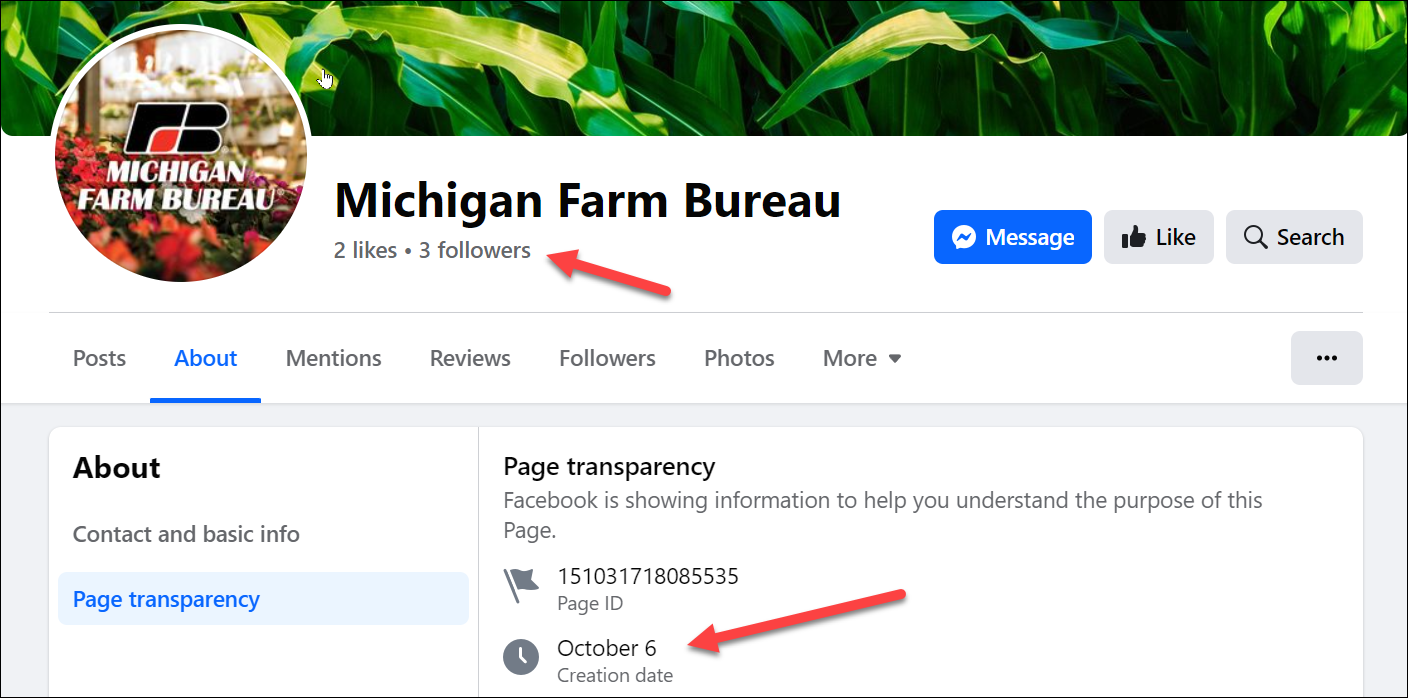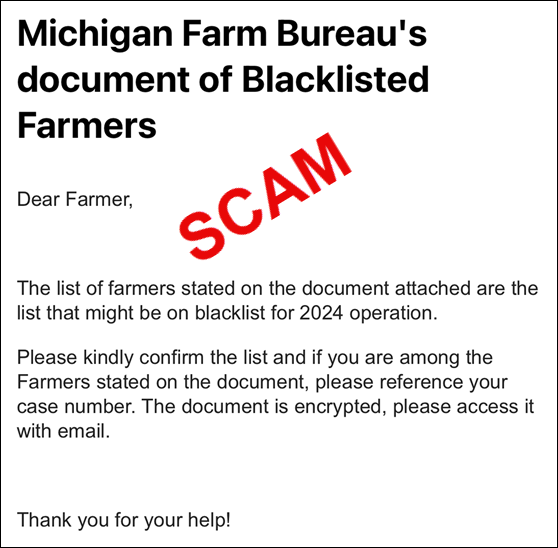Michigan Farm Bureau is warning its members and social media followers to be on the lookout for scams impersonating MFB on social media, and via email and text messages.
Social media
Multiple instances of scammers impersonating MFB and targeting people in comments on posts — in some cases asking them for money — have recently been reported. The fake pages copy MFB’s social media graphics and photos, but don’t have the same posts, “likes” and followers that MFB’s legitimate account does.

A fake Michigan Farm Bureau social media page (above) with 2 likes and 3 followers was created on Oct. 6, according to the page transparency information found on Facebook. The real MFB Facebook page has more than 16,000 likes and 18,000 followers.
While MFB is diligently reporting fake pages and actively working to take them down, it’s important that MFB members and social media followers are vigilant in keeping an eye out for posts that may be fraudulent.
“Michigan Farm Bureau will never ask you for your credit card information through social media, or through text message,” said Andy Kok, MFB general counsel.
“As with any organization of our size, MFB is unfortunately the target of online scammers, and it’s critical that people double check that they’re interacting with our legitimate social media outlets.”
Kok asks that people click through to the account information of any social media page claiming to be MFB to ensure that they are seeing posts from the organization’s real page — which has more than 16,000 likes and 18,000 followers.

If you see a suspicious post or Facebook page, please report it to by clicking on the three dots on the upper right-hand corner of the account and clicking “Find support or report.”
Text messages
MFB occasionally sends Action Alerts to members asking them to advocate to lawmakers using prewritten messages on specific legislative issues. Those important messages will always come from 52886.
Outside of those Action Alerts, Farm Bureau will never ask for any form of your personal information via text. MFB will also never ask you to open files or request any form of payment through text messages.
For more tips on protecting yourself from text message scams, and how to report them, visit this link from the Federal Trade Commission.
Email scams
MFB members have reported sporadic cases of receiving emails, like the one shown below, that are made to look like they’re coming from Farm Bureau staff. In the example instance, the sender asks for an encrypted file to be opened — potentially exposing the recipient to viruses.
It’s important to note that while scams are always evolving, MFB will never use threatening language in a legitimate message to its members. In almost every instance that members receive emails from MFB, their name will be included, rather than a general introduction like “Dear Farmer,” shown below.

While some scam emails included images and logos in the sender’s signature line, the graphics were heavily pixelated — another telltale sign that a message may be a fake.
It’s also important to remember that even if an email sender looks like a person’s name, you should hover of the name of the sender to verify that the email address associated with it is a trustworthy source.
Never click links in emails that you are not completely sure are legitimate messages.
Reporting suspicious activity
If you receive any message that you think may be fraudulent, don’t click any links or respond to the message and contact your MFB regional manager.

